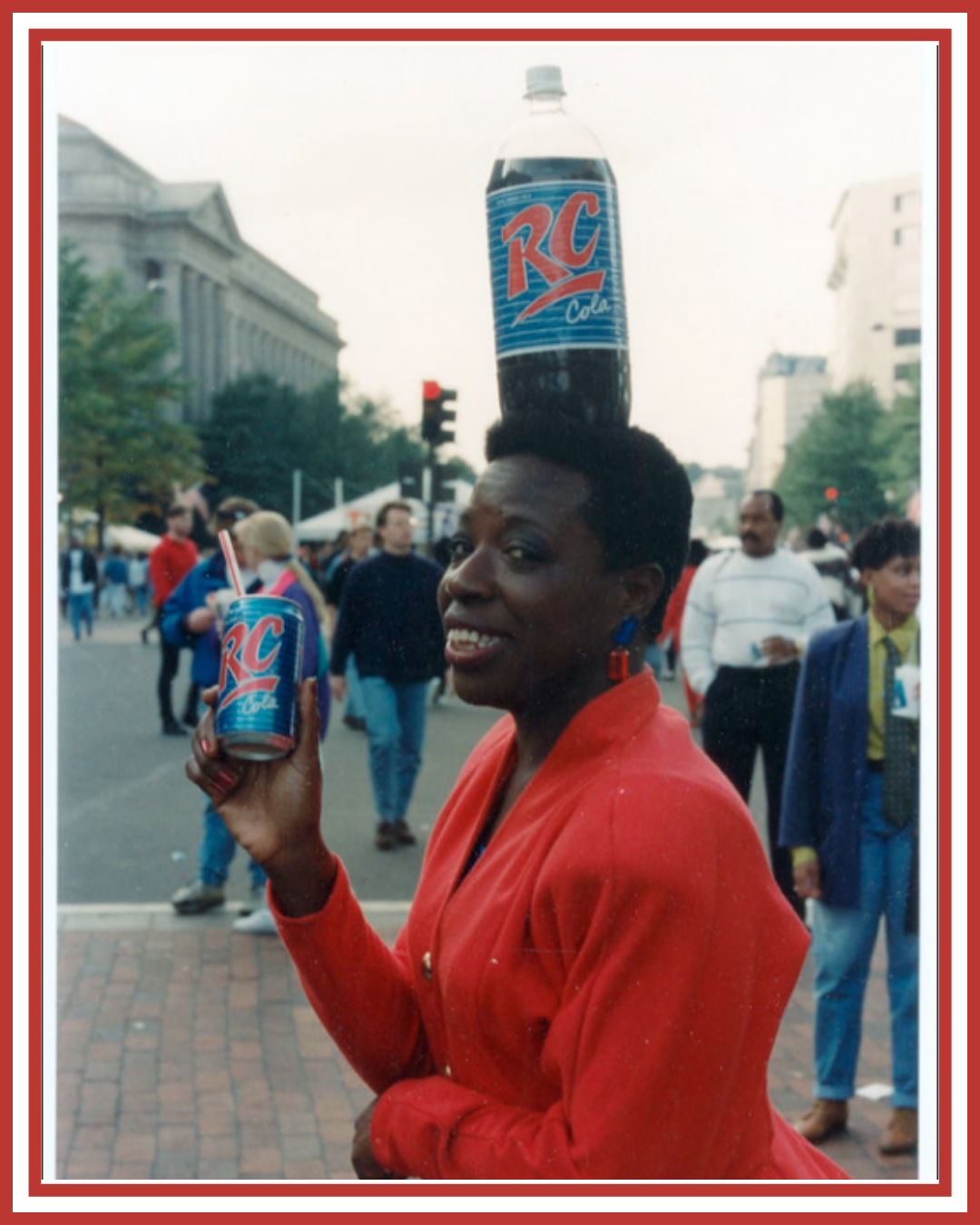



Democracy Dies in Darkness
THE CAPTURE OF BARRY BEACH
OUTSIDE THE COURT, PROTEST, PRAYER AND THE LUNGE FOR LOUNGE CHAIRS
By Henry Allen
July 3, 1990 at 8:00 p.m. EDT
The Battle of Barry Beach! The RC Cola lady! Bombardments of Smartfoods cheese popcorn!
Sweet revenge! The ticket-snatcher in the blue suit!
The trial of Mayor Marion Barry has been going on for 4 1/2 weeks,
and it has created a world of its own around the District Courthouse,
with its regulars, its elders, its legends, wisdom and internecine warfare.
"You got other people walking over there, and we're over here!" shouted the Rev.
Willie Wilson from the curb on the far side of the access road in front of the courthouse yesterday.
"That's right!" the crowd said.
The crowd was about 40 or 50 people, including Bishop George Augustus Stallings Jr.,
who was objecting to being banned by Judge Thomas Penfield Jackson from the courtroom,
and Abdul Alim Muhammad, national spokesman for the Nation of Islam and a congressional candidate in Prince George's County,
who warned of "electronic lynching" of Barry by the media.
"We're over here and the media's over there," Wilson shouted at a deputy marshal.
He pointed not just at the rows of TV cameras in front of the courthouse on the plaza now known as Barry Beach,
but also to the cameramen lying on aluminum drugstore lounge chairs in the small noon shade of a sculpture.
"We got a grandmother with us over here, and they're in those lounge chairs over there," Wilson said.
"That's right!"
"You're protesting," the deputy marshal said, to explain the difference.
"We're not protesting, we're praying!" Wilson said.
"That's right!"
The crowd had already marched around the courthouse four times, singing hymns and clapping --
all except for the Muslim bodyguards with the unblinking pouts and little bow ties that give them the look of
a freelance SWAT team with accounting practices on the side. The bodyguards didn't sing or clap. This added to their dignity --
they were very small for bodyguards, as it happened, with the tiniest of them winning the nickname of "Oddjob" from onlookers,
after the martial-arts character in the James Bond movie.
Anyway, marshal or no marshal, Wilson led the crowd across the access road toward Barry Beach, singing,
"Ain't gonna let nobody turn us 'round."
Then somebody yelled, "Look at those lounge chairs!"
The television cameramen awoke from the semi-hibernative state that cameramen go into when they're waiting for trials to break for lunch,
and they're not expecting a crowd to charge at them shouting, "Lounge chairs! Lounge chairs!" They got up and,
hitching their pants with the attitude of men who aren't about to be forced out of their lounge chairs but maybe it's time to stretch a little,
they abandoned their positions, and the Battle of Barry Beach was over.
A demonstrator named Flora Smith, from Ward 8, was the first one to claim a chair, and she stayed in it yelling "Race discrimination!"
and enjoying the shade while the rest of the crowd formed a prayer circle around a number of the cameramen, who by this time were shooting away while Muhammad accused them of staging an
"electronic lynching."
It was all part of another day outside the courthouse. It had the the atmosphere of a private Washington affair, with the coziness of a longstanding family quarrel.
"Are they for Barry or against Barry?" asked Marta Cambra, a teacher from Berlin, Vt., who was here with her husband, Dan, and their children, Erik and Kristina,
for a convention of the Future Business Leaders of America. "We were trying to figure it out."
Imagine if they'd seen the RC Cola lady, Maetta von Hulha, standing out in the middle of Constitution Avenue dancing in shining spandex and balancing a two-liter bottle of RC Cola on her head.
She's become such a familiar sight that the regulars outside the trial don't pay much attention to her anymore, and so far she has said she is doing it not for Barry or against Barry but because she likes RC Cola.
Then again, she is often to be seen in the checkout line at the Adams-Morgan Safeway, balancing a variety of bottles on her head, so Washingtonians are used to her.
A Jeep drove by, showering photographers and onlookers with little bags of cheese popcorn.
Why?
"I think they're from WAVA," somebody said. "They throw all kinds of good stuff."
But why? There was no telling why. It was just the way it has been outside the Barry trial.
After their all-night vigil by a side entrance, a group of ticket holders for the morning session had gotten their arguments over the case down to points so fine that anyone who hadn't been there for a while --
maybe since midnight when a woman named Patricia Little, "Miss Patricia Little," as she put it, became the first one to get in line -- was lost.
"It is the way of politics, and there are consequences," said Ed Hancock, a retired Navy employee.
"For somebody so old, you are ignorant," said Sue Gentry, who works with substance abusers.
He waved his canes. She waved her cigarettes.
"Consequences ... "
"Ignorant ... "
Finally, Hancock explained: "I've been waiting 19 years for that man to go down."
And Gentry explained: "Pops is something -- he resents anybody with a position."
You wondered what they would have done without each other.
Everything went along quite nicely, all in all. Granted, a man in a blue suit had grabbed a ticket away
from Yvette Alexander-McCullough, but her girlfriend hadn't gotten in, and so she didn't care much.
(How strange, to steal a ticket to get into a courtroom!) The bodyguards might glare, the Rev. Wilson might work on the black-white angle,
the police might gun their motorcycles, the cameramen might shout at the sign-holders blocking their shots, but the little village springing
up outside the courthouse had acquired the offhanded atmosphere of an agreement to disagree, an atmosphere familiar to anyone who has ever watched a legislature at work on a slow day,
quite possibly the atmosphere of democracy itself, but certainly pure Washington.
